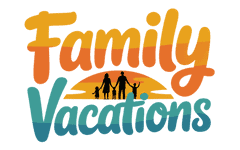Some guests light up a hotel. Others make staff count the hours until checkout. Behind every warm smile at the front desk is a worker secretly hoping you’re not the kind of guest who treats towels like disposable napkins or yells about check-in time like it’s a personal betrayal. Hotel staff have seen it all—from room-destroying whirlwinds to quiet angels who leave a thank-you note and a perfectly stacked pile of used towels. So what really grinds their gears? And what earns you invisible gold stars behind the scenes? Let’s pull back the curtain on 8 guest habits hotel workers quietly hate—and 8 they genuinely love.
Leaving a Room Like a Tornado Hit It
Imagine walking into a hotel room that looks like a storm blew through. The mess isn’t just a visual eyesore; it disrupts the tight housekeeping schedule. Scattered clothes, heaps of trash, and smudged mirrors might seem like minor issues, but they delay preparation for the next guest. Workers often feel overwhelmed by the chaos left behind. Endlessly straightening out such rooms isn’t part of the standard cleaning job. It’s a challenge that adds undue stress, often leading to delays for incoming guests. Cleanliness in shared spaces reflects respect towards the staff.
Treating Staff Like Servants
In the world of hospitality, politeness forms the backbone of interactions. When guests treat staff as mere servants, it erodes the sense of mutual respect that should exist. Snapping fingers or barking orders diminishes the value of their service. It’s demoralizing and can lead to a decline in service quality. Staff members thrive on respect and acknowledgment. A simple ‘please’ or ‘thank you’ can make a significant difference in their day. By recognizing their efforts, guests contribute to a harmonious hotel environment, where everyone feels valued.
Trying to Sneak in Extra Guests
Trying to sneak additional guests into a hotel room might seem harmless, but it poses multiple challenges. The strain on resources like water and electricity increases, violating fire safety protocols. This breach of trust complicates housekeeping and often leads to unexpected issues. Guests attempting such stunts disregard hotel policies, causing potential complications for staff and management. Workers often detect such behavior quickly, leading to awkward confrontations. Respecting occupancy rules ensures a smoother stay for everyone involved, maintaining a safe and enjoyable environment for all.
Being Rude During Check-In
The check-in process sets the tone for a guest’s stay. Rude behavior during this time can lead to unnecessary delays and misunderstandings. Front desk staff strive to make the process as seamless as possible, often under immense pressure. Unpleasant interactions sap their energy, affecting their ability to assist other guests efficiently. Patience and a friendly attitude can transform this experience. Offering a smile or a kind word shows appreciation for their efforts. By fostering a positive atmosphere, guests contribute to better service and a more memorable stay.
Refusing to Tip Housekeeping
Tipping is not mandatory, but it’s a gesture of appreciation for hard work, especially in luxury hotels. When guests leave without tipping, it can feel like their efforts aren’t acknowledged. Housekeeping staff often work tirelessly behind the scenes, ensuring rooms are pristine. A small token of gratitude can brighten their day and encourage continued excellence. For many, these tips supplement their income significantly. Recognizing their contributions fosters a supportive environment. Guests showing appreciation enhance the overall hospitality experience, making it rewarding for everyone involved.
Hogging the Breakfast Buffet or Hoarding Toiletries
Buffets are a wonderful perk, but overloading plates disrupts balance. Guests hoarding toiletries or taking excessive food for ‘later’ impacts supply chains and inconveniences others. Such behavior is seen as inconsiderate, affecting the experience of fellow guests and the staff who manage these amenities. Mindfulness in shared spaces is essential for maintaining harmony. Ensuring fair distribution allows everyone to enjoy these services equally. Appreciating the effort behind these offerings enhances the overall atmosphere, making it pleasant for all. It’s about creating a community of respect and consideration.
Lying About Room Damage
Accidents happen, but honesty is vital. Lying about room damage creates unnecessary complications. When guests falsely accuse previous occupants, it wastes staff time, leading to disputes and strained relationships. Admitting to mishaps allows for quick resolutions, often without penalties. Hotel staff appreciate transparency, as it aids in maintaining the quality of the facilities. Such honesty fosters trust between guests and management. Building this rapport ensures a smoother, more pleasant stay. Ultimately, acknowledging responsibility reflects maturity and respect for the property and its caretakers.
Ignoring Do Not Disturb Signs or Boundaries
Boundary respect is crucial in hospitality. Ignoring ‘Do Not Disturb’ signs or entering staff-only areas disrupts workflow. Such actions lead to chaos, affecting not just the current guest but others as well. Housekeeping relies on these signals to manage their tasks efficiently. Repeated interruptions can lead to decreased morale and service quality. By respecting boundaries, guests help maintain a productive environment. It’s about acknowledging the effort and dedication of those working to ensure a pleasant stay. Consideration in shared spaces enhances the overall guest experience.
Saying ‘Please’ and ‘Thank You’
Politeness can make all the difference in hospitality. Guests who consistently say ‘please’ and ‘thank you’ create a positive atmosphere. These simple words convey respect and appreciation, motivating staff to provide even better service. Acknowledging the hard work of hotel workers fosters goodwill and enhances interactions. Such gestures often lead to a more personalized experience, as staff feel valued and eager to assist. By recognizing their efforts, guests contribute to a culture of kindness and respect, making the stay memorable for everyone involved.
Tipping Housekeeping and Valets
Tipping is a small act with substantial impact. Guests who tip housekeeping or valets acknowledge the hard work behind the scenes. It’s a gesture that shows gratitude, encouraging excellence in service. These tips often form a crucial part of the staff’s income, supporting their livelihood. Appreciating these efforts fosters a respectful and supportive environment. By offering tips, guests enhance the hospitality experience, making it rewarding for workers. Such interactions contribute to a positive atmosphere, where gratitude and recognition are part of everyday exchanges.
Being Clear and Honest at Check-In
Clarity during check-in can make a significant difference in the hospitality experience. Guests who are upfront about their needs, like room preferences or special requests, help staff accommodate them better. Early communication allows for smoother service delivery and prevents misunderstandings. This transparency fosters a cooperative relationship, where both parties feel understood and respected. By expressing their needs clearly, guests contribute to a positive environment, enhancing the overall stay. It’s about building a rapport that benefits everyone, creating a memorable and pleasant experience for all involved.
Leaving the Room Reasonably Tidy
Tidiness in hotel rooms reflects respect and consideration for housekeeping staff. Guests who leave their rooms reasonably tidy contribute to a smoother cleaning process. Simple actions like placing trash in bins and gathering towels in one spot make a big difference. These efforts are appreciated by the staff, as they indicate a shared responsibility for maintaining the space. Such behavior enhances the efficiency of housekeeping, leading to quicker turnovers and improved service quality. By respecting the shared environment, guests help create a harmonious hotel experience for all.
Reporting Issues Calmly and Constructively
Unexpected issues can arise, but how guests handle them matters. Reporting problems calmly ensures faster resolutions. Constructive communication allows staff to address concerns efficiently, leading to better outcomes. Guests who approach issues with understanding and patience often receive more attentive service. This attitude fosters a positive relationship between guests and management. By contributing to a respectful dialogue, guests enhance the overall hospitality experience. It’s about working together to ensure a pleasant stay, where both parties feel heard and valued. Constructive feedback benefits everyone.
Engaging with Local Recommendations
Guests who seek local recommendations show appreciation for the staff’s knowledge. Engaging with suggestions for dining or sightseeing enhances the experience, creating connections between visitors and the locale. This trust in staff expertise fosters a sense of community, where guests feel more integrated into the local culture. By exploring the area with insider tips, guests enrich their stay, gaining unique insights and experiences. Such interactions boost morale, as staff feel valued for their contributions. It’s about creating memorable adventures that go beyond the hotel walls.
Respecting Quiet Hours and Shared Spaces
Respect for quiet hours ensures a pleasant stay for everyone. Guests who adhere to these guidelines contribute to a serene environment. Considerate behavior in shared spaces, like not blasting music or shouting, enhances the hotel experience. This respect fosters goodwill among guests and staff, creating a harmonious atmosphere where everyone can relax. By valuing shared spaces, guests help maintain the tranquility of the hotel, making it enjoyable for all. It’s about understanding the importance of peace and quiet, allowing everyone to unwind in comfort.
Leaving a Thank-You Note
A thank-you note is a heartfelt gesture that leaves a lasting impression. Guests who take the time to express gratitude in writing show appreciation for the efforts of hotel staff. These notes often become cherished keepsakes, shared among the team as a reminder of their hard work. Such recognition boosts morale, encouraging continued excellence in service. By acknowledging the dedication of the staff, guests contribute to a supportive and positive environment. It’s a simple act that strengthens the connection between guests and workers, enhancing the overall hospitality experience.

